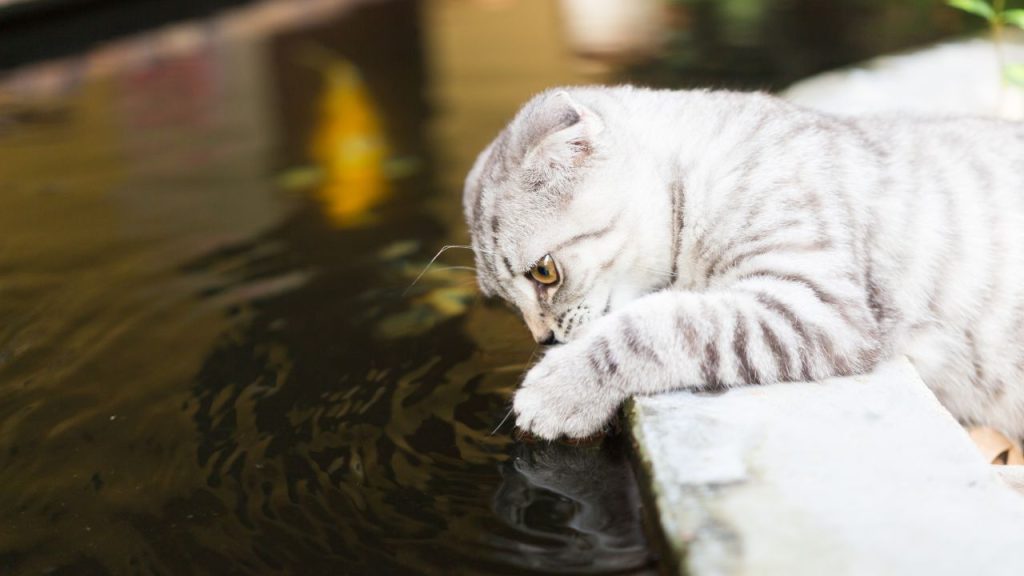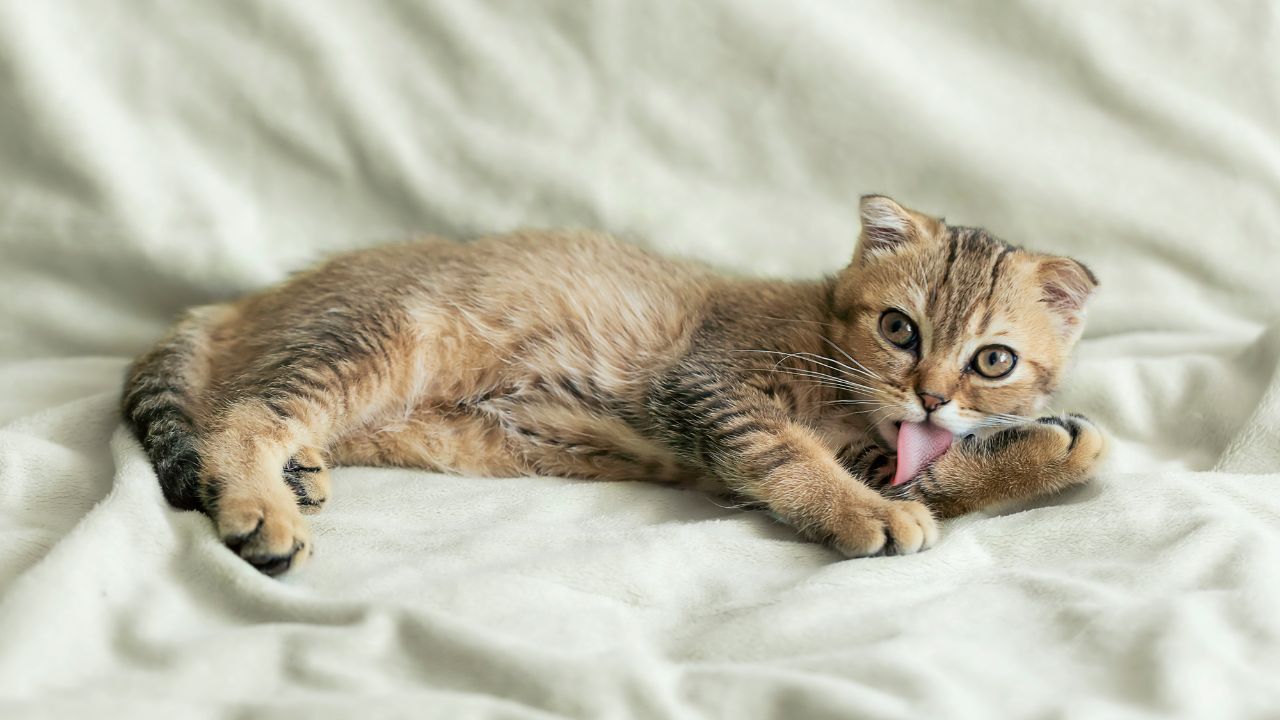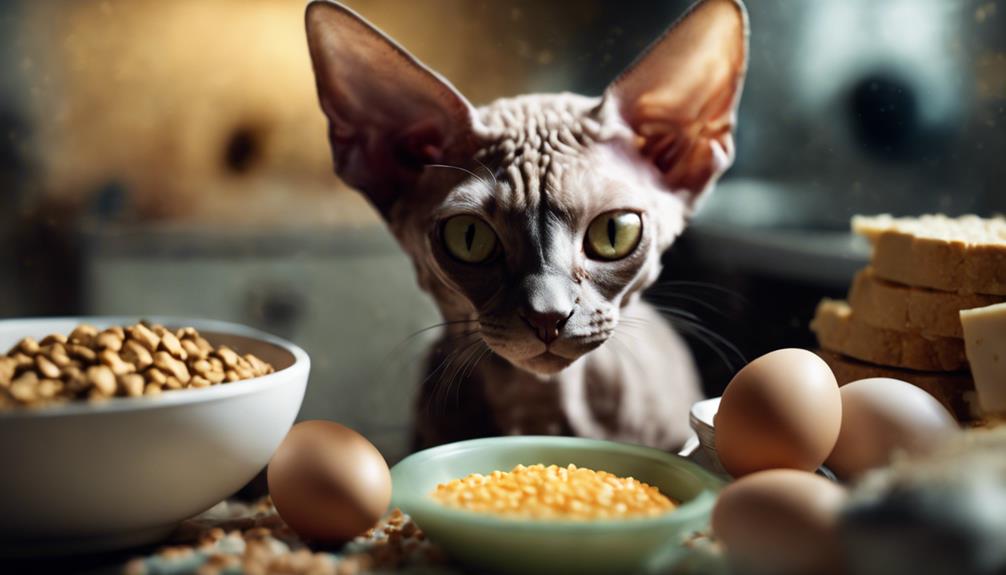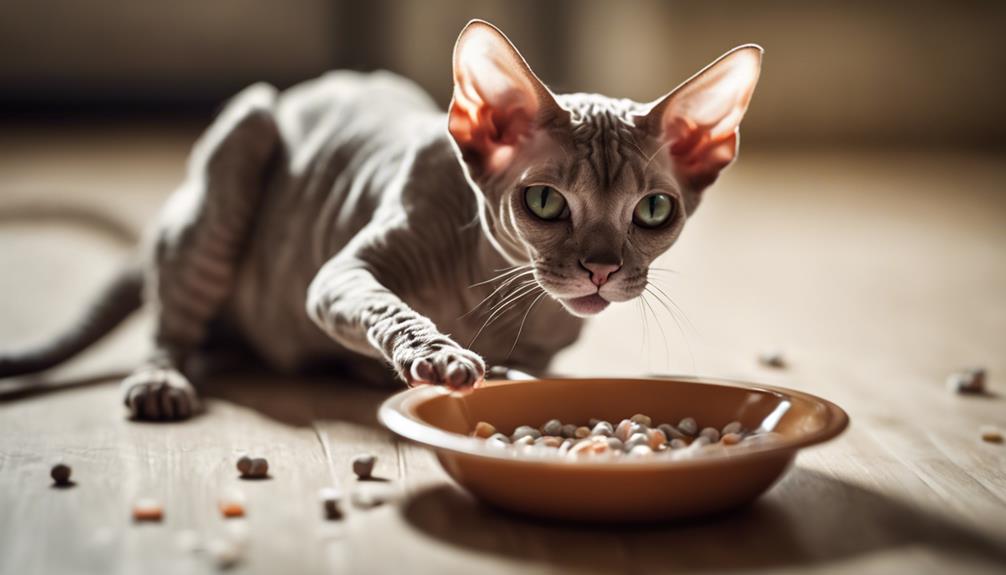Scottish Fold cats are known for their distinctive folded ears, which give them a unique and adorable appearance. However, many people wonder if this breed is prone to health problems. While Scottish Folds are generally healthy cats, they do have a higher risk of certain health issues due to their genetic makeup and physical characteristics.
One of the most common health problems in Scottish Folds is a condition called osteochondrodysplasia, also known as Scottish Fold disease. This condition affects the cat’s cartilage, leading to abnormal bone development and joint issues. Other health problems that Scottish Folds may be predisposed to include polycystic kidney disease, which can lead to kidney failure, and spinal abnormalities that can cause mobility issues. While not all Scottish Folds will develop these health problems, it is important for potential owners to be aware of the risks and take steps to prevent them.
Overview of Scottish Fold Cats
Scottish Fold cats are a unique and adorable breed that originated in Scotland in the 1960s. They are known for their distinctive folded ears, which give them a cute and cuddly appearance. These cats have a round face and body, with short legs and a short, dense coat that requires minimal grooming.
Despite their charming appearance, Scottish Fold cats are known to have some health problems. The most significant health concern associated with this breed is a genetic condition called Congenital Osteochondrodysplasia (SFOCD), also known as Scottish Fold Disease. This condition affects the cat’s cartilage throughout the body, leading to issues like arthritis, spinal abnormalities, and stiff limbs.
It is important to note that not all Scottish Fold cats will develop SFOCD, and the severity of the condition can vary widely. However, it is a good idea to be aware of this potential health issue when considering adopting a Scottish Fold cat.
In addition to SFOCD, Scottish Fold cats may also be prone to other health problems, such as:
- Ear infections due to their folded ears
- Polycystic kidney disease (PKD)
- Hypertrophic cardiomyopathy (HCM)
- Dental problems
It is essential to provide regular veterinary care and preventative measures, such as a healthy diet, exercise, and proper grooming, to keep your Scottish Fold cat healthy and happy.
Overall, Scottish Fold cats are a charming and unique breed that can make wonderful pets. However, it is important to be aware of their potential health issues and take steps to ensure their well-being.
Genetic Mutation and Health Problems
Genetic Mutation
Scottish Fold cats are known for their unique appearance, with their ears folded forward and almost flat against their head. This characteristic trait is due to a genetic mutation that affects the development of cartilage. The mutation causes an abnormality in the ear cartilage, which results in the fold. Scottish Folds have a dominant gene mutation, which means that even if only one parent has the gene, there is a high probability that the offspring will inherit the trait.
Health Problems
Unfortunately, the genetic mutation that gives Scottish Folds their distinctive appearance also causes a range of health problems. The mutation affects the development of cartilage and bone, leading to a variety of issues.
One of the most common health problems associated with Scottish Folds is osteochondrodysplasia, a condition that affects the development of cartilage and bone. This condition can cause degenerative joint disease, painful arthritis, and other bone and joint problems. Scottish Folds with osteochondrodysplasia may also have misshapen toes, thickened and inflexible tails, and accelerated progressive osteoarthritis.
Another health problem that Scottish Folds may experience is polycystic kidney disease (PKD). This is a genetic disease that causes cysts to form on the kidneys, which can lead to kidney failure. PKD is a serious condition that can cause a range of symptoms, including frequent urination, loss of appetite, vomiting, and weight loss.
Congenital osteodystrophy is another health problem that Scottish Folds may experience. This is a condition that affects the development of bone and cartilage, leading to a range of skeletal abnormalities. Scottish Folds with this condition may have fused tail, ankle, or knee joints, which can make it difficult for them to move around.
In conclusion, Scottish Folds are a unique and beautiful breed of cat, but their genetic mutation can cause a range of health problems. Owners of Scottish Folds should be aware of these potential health issues and take steps to ensure that their cat receives appropriate care and treatment.
Common Health Issues
Scottish Fold cats are generally healthy cats, but like any other breed, they are prone to certain health issues. Here are some of the most common health issues that Scottish Fold cats may face:
Ear Infections
One of the most common health issues in Scottish Fold cats is ear infections. This is because of their unique ear shape, which can trap dirt, wax, and other debris. Ear infections can cause discomfort, itching, and even hearing loss if left untreated. Regular cleaning of the ears can help prevent ear infections.
Cardiomyopathy
Cardiomyopathy is a heart disease that affects the muscles of the heart. Scottish Folds are prone to developing cardiomyopathy, which can lead to congestive heart failure, blood clots, and other serious health problems. Regular check-ups with a veterinarian can help detect and treat cardiomyopathy early.
Obesity
Scottish Fold cats are prone to obesity, which can lead to a host of health problems, including diabetes, joint problems, and heart disease. It is important to monitor their diet and exercise to prevent obesity.
Infections
Scottish Fold cats are also prone to infections, such as urinary tract infections. These infections can cause discomfort and pain, and if left untreated, can lead to more serious health problems. Regular check-ups with a veterinarian can help detect and treat infections early.
In addition to these common health issues, Scottish Folds are also prone to polycystic kidney disease (PKD), a progressive disease that causes cysts to develop in the kidneys and can lead to kidney failure. Regular check-ups with a veterinarian can help detect and treat PKD early.
Overall, it is important to provide proper care and attention to your Scottish Fold cat to prevent and detect any potential health issues early.

Ear Care and Grooming
Taking care of your Scottish Fold cat’s ears is an essential part of their overall health and well-being. Here are some tips on how to properly care for your cat’s ears and keep them healthy.
Ear Cleaning
Cleaning your cat’s ears regularly is essential to prevent wax buildup, which can lead to infections and other health problems. Use a soft, damp cloth or cotton ball to clean the outer ear area, and avoid using cotton swabs or other tools that can damage the delicate ear canal.
If you notice any discharge, foul odor, or other signs of infection, contact your veterinarian immediately. They can recommend a safe and effective ear cleaning solution or prescribe medication if necessary.
Ear Mites
Ear mites are a common problem in cats, and Scottish Folds are no exception. These tiny parasites can cause intense itching and discomfort, and if left untreated, can lead to more serious health problems.
If you suspect your cat has ear mites, look for signs such as excessive scratching, head shaking, or discharge from the ears. Your veterinarian can perform a simple test to confirm the diagnosis and prescribe an appropriate treatment.
Grooming
Grooming your Scottish Fold cat regularly is an essential part of their overall health and well-being. Regular brushing helps to remove loose fur, dirt, and debris from their coat, and can prevent tangles and matting.
When grooming your cat, pay special attention to their folded ears, as they can be prone to infections and other health problems. Use a soft-bristled brush or comb to gently remove any debris or wax buildup, and avoid using any harsh chemicals or tools that could damage their delicate skin.
In conclusion, taking care of your Scottish Fold cat’s ears and grooming them regularly is essential to their overall health and well-being. By following these simple tips, you can help your cat stay healthy and happy for years to come.
Health Concerns in Breeding
Breeding Scottish Fold cats can lead to certain health concerns, especially when it comes to purebred cats. The Governing Council of the Cat Fancy initially denied the registration of the breed due to the health issues that were arising from breeding two folds together. However, Scottish folds were officially accepted as a breed in 1973.
One of the main health concerns associated with breeding Scottish Folds is a genetic condition known as Congenital Osteochondrodysplasia (SFOCD) or Scottish Fold Disease. All Scottish Fold cats with folded ears suffer from this condition to some degree as it is linked to the curled ears. Folds that inherit the folded ear gene from both parents (homozygous Folds) are much more likely to develop congenital osteodystrophy, a genetic condition that causes the bones to distort.
Breeding Scottish Folds with British Shorthairs can help reduce the risk of developing SFOCD, as the British Shorthair breed does not carry the gene for folded ears. However, it is important to remember that the Scottish Fold breed can still suffer from other health problems, especially due to faulty breeding. Crossing within the same breed can often cause deformities.
It is crucial to choose a reputable breeder who prioritizes the health of their cats. Responsible breeders will test their cats for genetic diseases and will not breed cats with known health issues. The Cat Fancy of Great Britain provides guidelines for breeders to follow in order to ensure that their cats are healthy and well-cared for.
In conclusion, while Scottish Folds can be prone to certain health concerns, responsible breeding practices can help mitigate these risks. It is essential to do thorough research and choose a breeder who prioritizes the health and well-being of their cats.
Symptoms and Treatment
Scottish Fold cats are known for their distinct folded ears, but unfortunately, they are also prone to several health problems. Here are some of the most common symptoms and treatments for Scottish Fold cats.
Early Warning Signs
Early warning signs of health problems in Scottish Fold cats can include:
- Loss of appetite
- Weak pulse
- Difficulty breathing
- Lethargy
If you notice any of these symptoms, it is important to take your cat to the vet as soon as possible. Early detection can lead to more effective treatment and a better outcome.
Diagnosis and Treatment
If your Scottish Fold cat is experiencing health problems, your vet will likely perform a physical exam and possibly take x-rays to determine the cause. Treatment options may include medication, supplements, or surgery depending on the specific condition.
For example, Scottish Fold cats are prone to a genetic deformity called Osteochondrodysplasia that causes painful joint disease. Treatment for this condition may include pain management medication, supplements to reduce inflammation, and medical care to manage the symptoms.
Pain Management
Pain management is an important aspect of treating health problems in Scottish Fold cats. Your vet may prescribe pain medication or recommend supplements to reduce inflammation and manage pain.
In addition to medication, there are other ways to help manage your cat’s pain. Providing a comfortable and warm environment, as well as gentle exercise, can help improve their quality of life.
Overall, it is important to be aware of the potential health problems that Scottish Fold cats may face and to seek medical attention as soon as possible if you notice any symptoms. With proper diagnosis and treatment, many of these health problems can be managed effectively.
Living with Scottish Fold Cats
If you are considering getting a Scottish Fold cat, it is important to know what to expect when it comes to living with them. Here are some important factors to consider:
Temperament and Characteristics
Scottish Fold cats are known for their gentle, intelligent, and affectionate nature. They are also very flexible and adaptable, making them great companions for families with children or other pets. They are playful and enjoy activities like playing with toys, climbing, and exploring their surroundings.
Nutrition
Like all cats, Scottish Fold cats require a balanced diet that is high in protein and low in carbohydrates. It is important to feed them a diet that is rich in taurine, an essential amino acid that helps maintain their heart and eye health.
Activities
Scottish Fold cats are active and playful, so it is important to provide them with plenty of toys and activities to keep them entertained. They enjoy playing with toys, climbing, and exploring their surroundings.
Medical Care
Scottish Fold cats require regular medical care, including vaccinations and regular check-ups with a veterinarian. They may also require regular grooming if they are long-haired.
Life Expectancy
The life expectancy of a Scottish Fold cat is typically around 12-15 years. However, with proper care and medical attention, they can live longer.
In summary, Scottish Fold cats are gentle, intelligent, and affectionate pets that require regular medical care and a balanced diet. They are active and playful, so it is important to provide them with plenty of toys and activities to keep them entertained. With proper care, they can live long and healthy lives.




